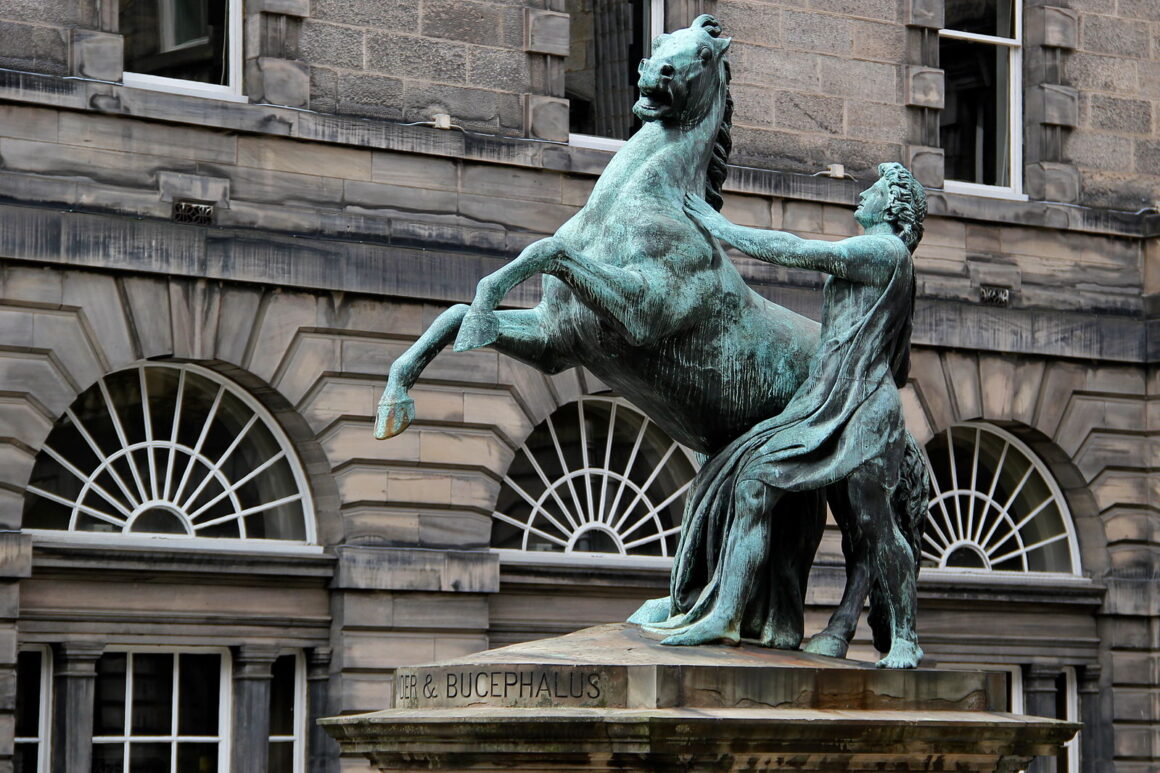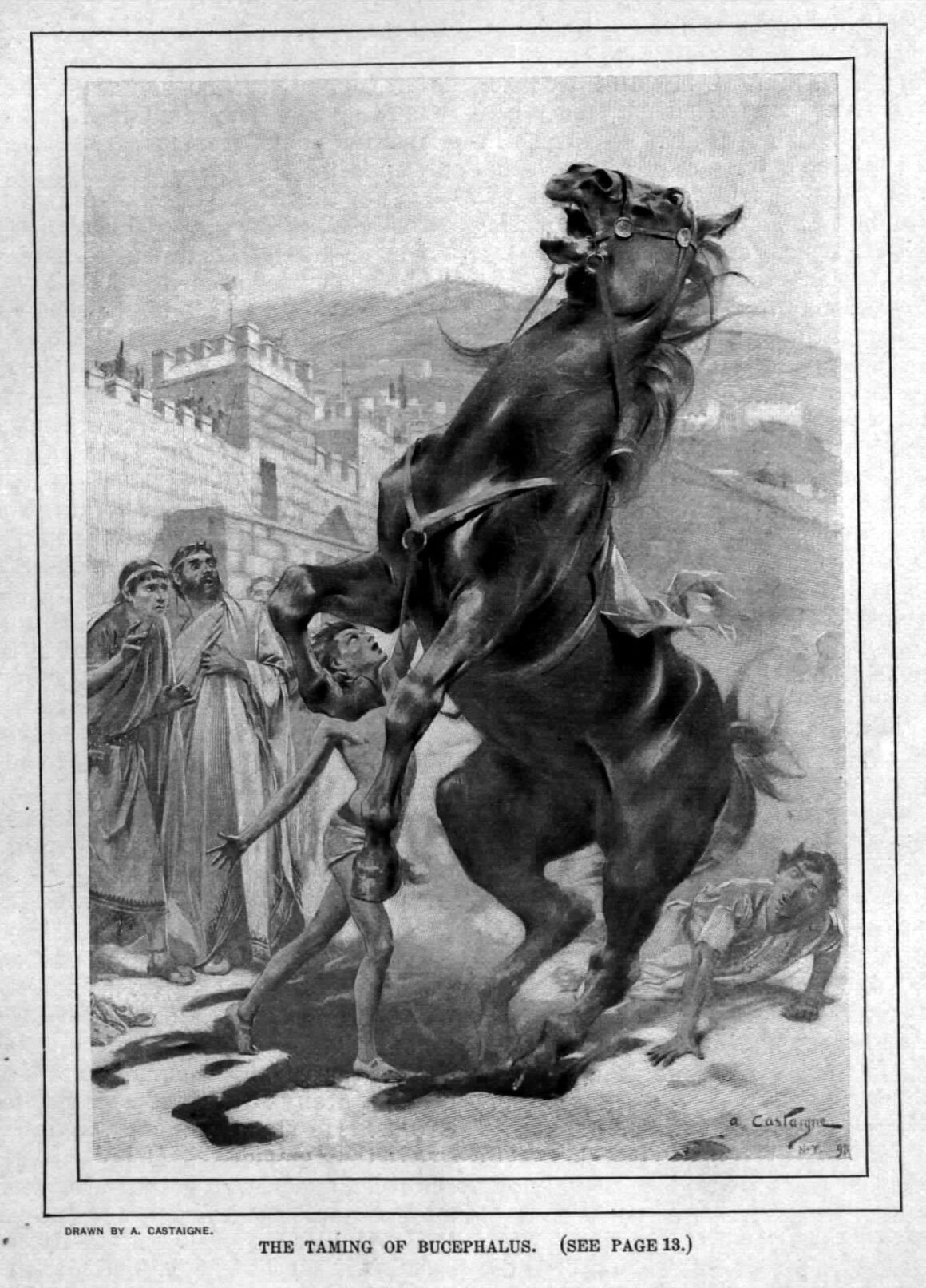The story of Alexander the Great’s horse, Bucephalus, has always been one of my favorites because it shows how gentleness can connect with even the “wildest” horse.

It is no surprise that Alexander the Great was a legend in his own time. After all, he conquered half of Asia at just 23 years old. However, many people don’t realize that his horse, Bucephalus, played an important role in his conquest of the known world, carrying him into many battles until his death in 326 B.C.E.
The Horse No One Could Tame

The story of Bucephalus begins when a trainer named Philon heard that King Philip II was looking for a gift for his 12 year-old son, Alexander. Philon had come across a particularly beautiful black horse with a white star and blue eyes. He offered to sell the horse to King Phillip for 13 talents, which was a lot of money – especially since the animal was so wild that no one could ride him.
When Alexander heard that no one could ride the horse he was not deterred. He welcomed the challenge. How much better would it be if he could tame a horse that no one else could?
After watching the horse rear uncontrollably, he realized that the stallion was simply afraid of his own shadow. When no one else could approach the horse, Alexander gently walked towards him and turned his head towards the sun so that the shadows fell behind him. The horse was no longer afraid and Alexander had earned his trust forever.
Alexander named the horse Bucephalus, which was a combination of the Greek words “bous,” meaning ox and “kephalos,” meaning head. Perhaps he was named “ox head” because of his stubborn personality.
A Faithful Warhorse
After this initial bonding, Bucephalus served as Alexander’s trusted warhorse for many years. Bucephalus would only allow Alexander to ride him. It is said that Alexander was so devoted to his horse that he would not eat until he saw it eating and that every time Bucephalus lay down, he would lie down beside him.
At one point in battle, when a spear pierced Alexander through the calf, Bucephalus carried him from the battlefield while blood gushed from his wound. In return for saving its master’s life, Alexander had a bronze statue of the horse erected at Olympia in Greece.
The Death of Bucephalus
Sources don’t agree on how Bucephalus died. Some say that he died of natural causes at the age of 32. Others claim that he died from fatal injuries sustained at the Battle of the Hydaspes in 326 B.C.E., in which Alexander’s army defeated King Porus
Alexander’s grief was so great after Bucephalus’ death, that he buried him with full military honors, including a 12 strong honor guard and a famous soprano singer named Timothea to eulogize his great companion. Alexander even named a city, Bucephala, after him.
Sources: University of Boulder Colorado Classics Dept.; History Extra; ThoughtCo.
